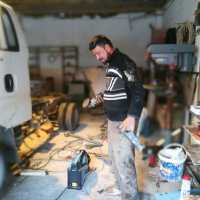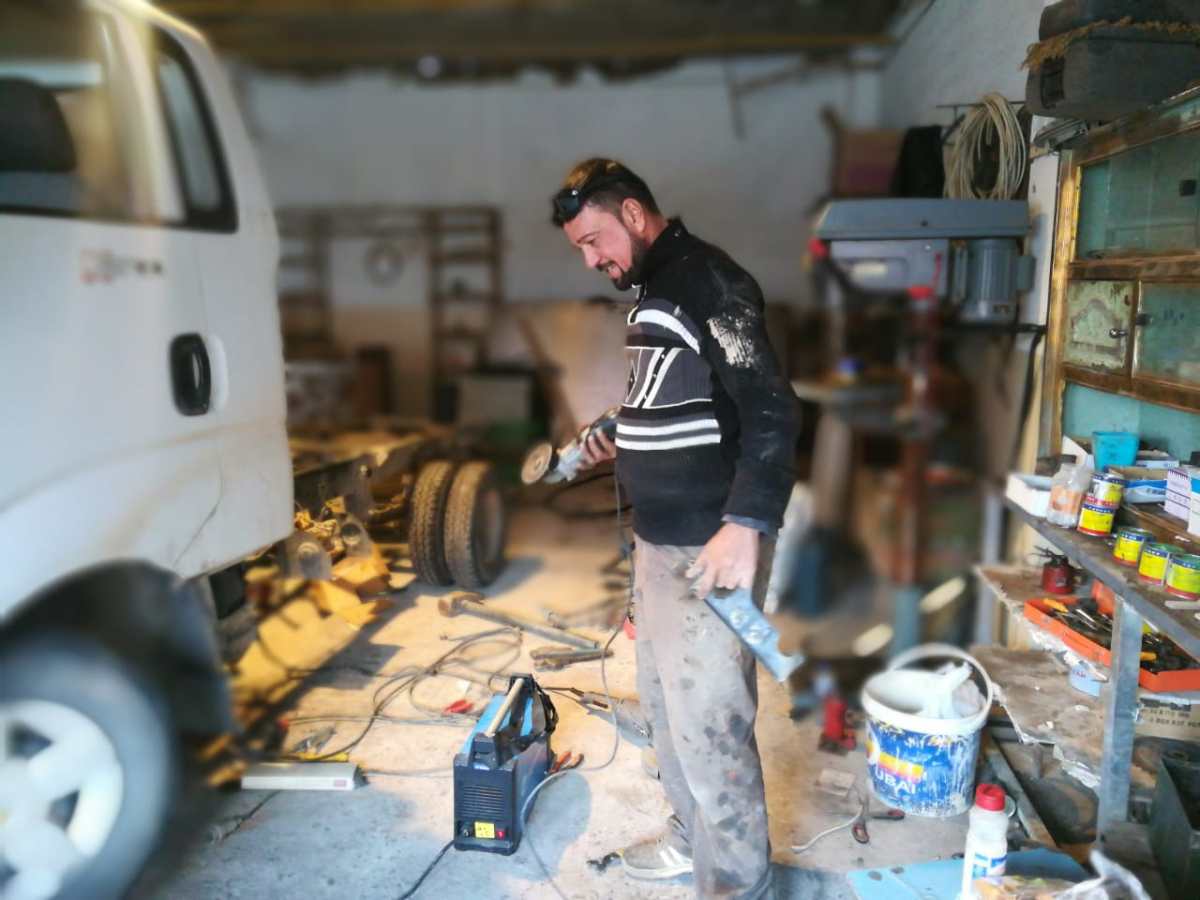If you found yourself in Sinjar City, Iraq needing directions, and you pulled over to the side of the road to ask for help from a man selling tea, or perhaps a man stacking ruby-red pomegranates for sale outside his fruit shop, the odds are good you would be told, “Drive straight past Firas the Welder” or “Turn after Firas the Welder.” Firas didn’t own a welding shop of his own—he worked at someone else’s. But his skills were so good, and he was so well-known, that he quickly became a landmark.
If you want to call Firas today, and you use an app popular in Iraq to look up his cell phone number, you will find his name listed as ‘Firas the Welder’. Welding is more than Firas’ job, it’s his identity.
Firas left school in the fifth grade to start working with his father–a welder–in order to help support their family. He didn’t start welding on his first day of work, of course. But after 21 years in the business, there isn’t much about welding that Firas doesn’t know.
Rebuilding in Sinjar
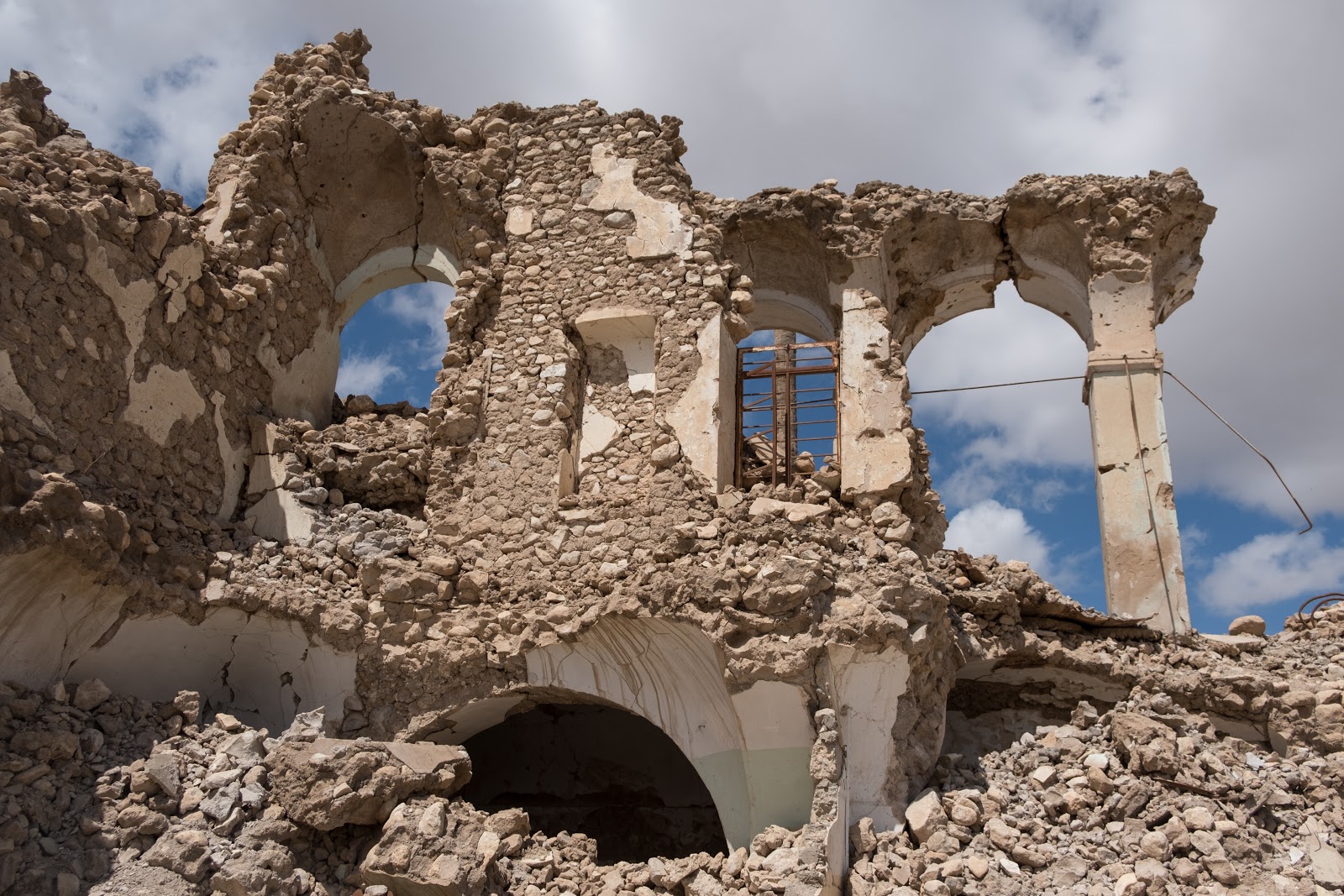
If you’ve heard of Sinjar City, it’s likely because of the tragedy wrought on the city by ISIS in 2014. A center for the minority Yazidi population in Iraq, Sinjar was targeted by ISIS for destruction. Families who didn’t escape the invasion were slaughtered or enslaved. And the historical section of the city, the upper market, was decimated—so thoroughly damaged it may never be restored.
This is the story of Sinjar that has been well told.
But Sinjar City is larger than its historic neighborhood. And the story of the city is larger too. There are many neighborhoods in Sinjar City that were damaged by war, but repairable. There are many neighborhoods in the city where residents are slowly moving home. Earlier this year you helped hundreds of returnees with food packs, to relieve some of the burdens that come with starting over in a damaged city.
The task list is essentially the same for each family who moves home: make the home secure by replacing windows and doors destroyed or stolen during wartime, later make further repairs as time and money allow.
Securing the home, from the weather and outsiders—this is the priority.
The Right Place at the Right Time
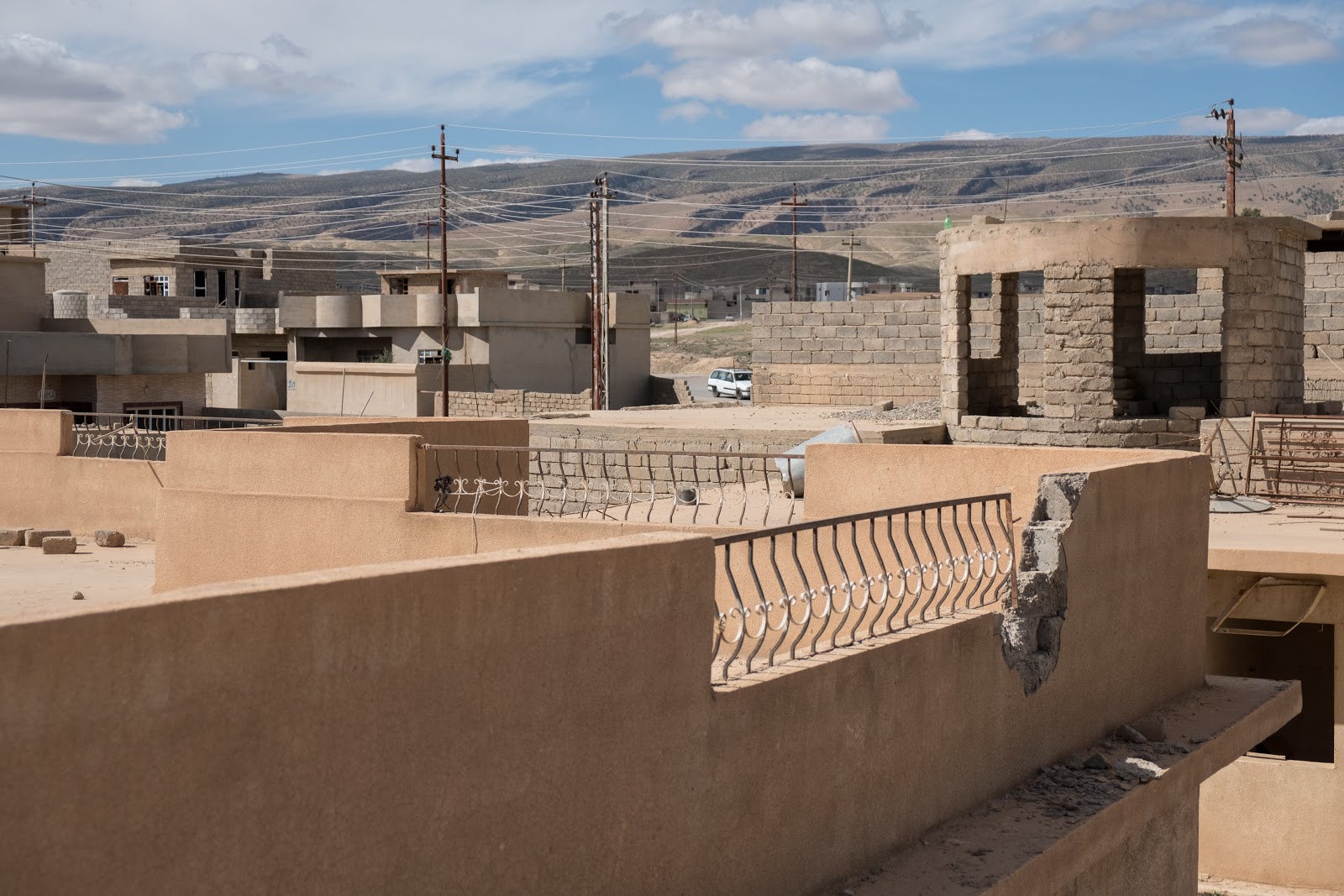
“I wish you could all come to see how we are working. Today I am busy. We are working!” We last spoke with Firas a few days ago. He took a break from work to share about the progress of his business—a welding shop you helped him start with a small business grant.
”From the first day we put items in the shop [windows and doors], people started to come.” Making doors and windows happens to be Firas’ favorite things to make. After two decades in the field, he has experience making lots of different shapes. “Everyone in Shingal needs these windows and doors, and I’m really good at it,” Firas tells us.
Firas’ business is still young, but it’s already providing for the basic daily needs of seven families.
There is more than one way to help families move home after the devastation of war.
In Syria, you are helping to renovate homes, installing basic needs like the doors and windows needed to make homes secure. We work with local tradesmen, to make sure that our investment has the most positive impact on the local economy.
In Sinjar City, we invested directly in a local tradesman—’Firas the Welder’. The scale of renovation work needed in Sinjar is massive, and the number of tradesmen who have already returned home is few. Firas has knowledge and skills, but because he lost everything to ISIS, he didn’t have the tools he needed to work.
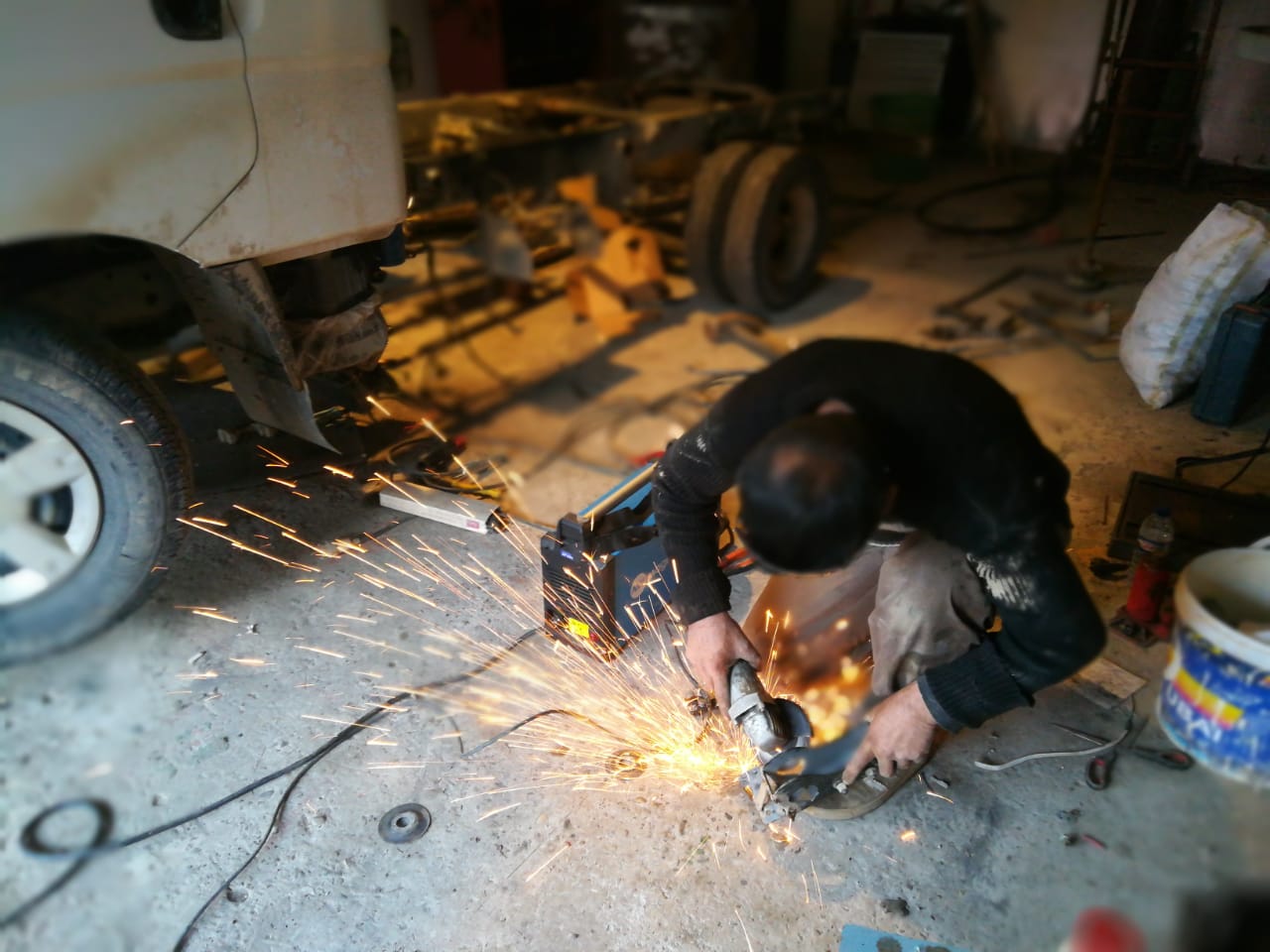
You bridged that gap, got Firas the equipment he needed, and are now making it possible for families from Sinjar City to secure their houses and move home.
His customers are so happy! Firas used to work as a laborer in someone else’s shop. Now his customers can go to him directly. Because he owns his business, Firas was able to bring his two brothers–also welders trained by their father–into the shop right away. Recently, he hired four helpers to complete a large contract. Firas’ business is still young, but it’s already providing for the basic daily needs of seven families.
Firas’ skills and great work ethic are all the advertising he needs for his new shop. “If more families start returning, I won’t even have time to drink tea—because people love my work.”
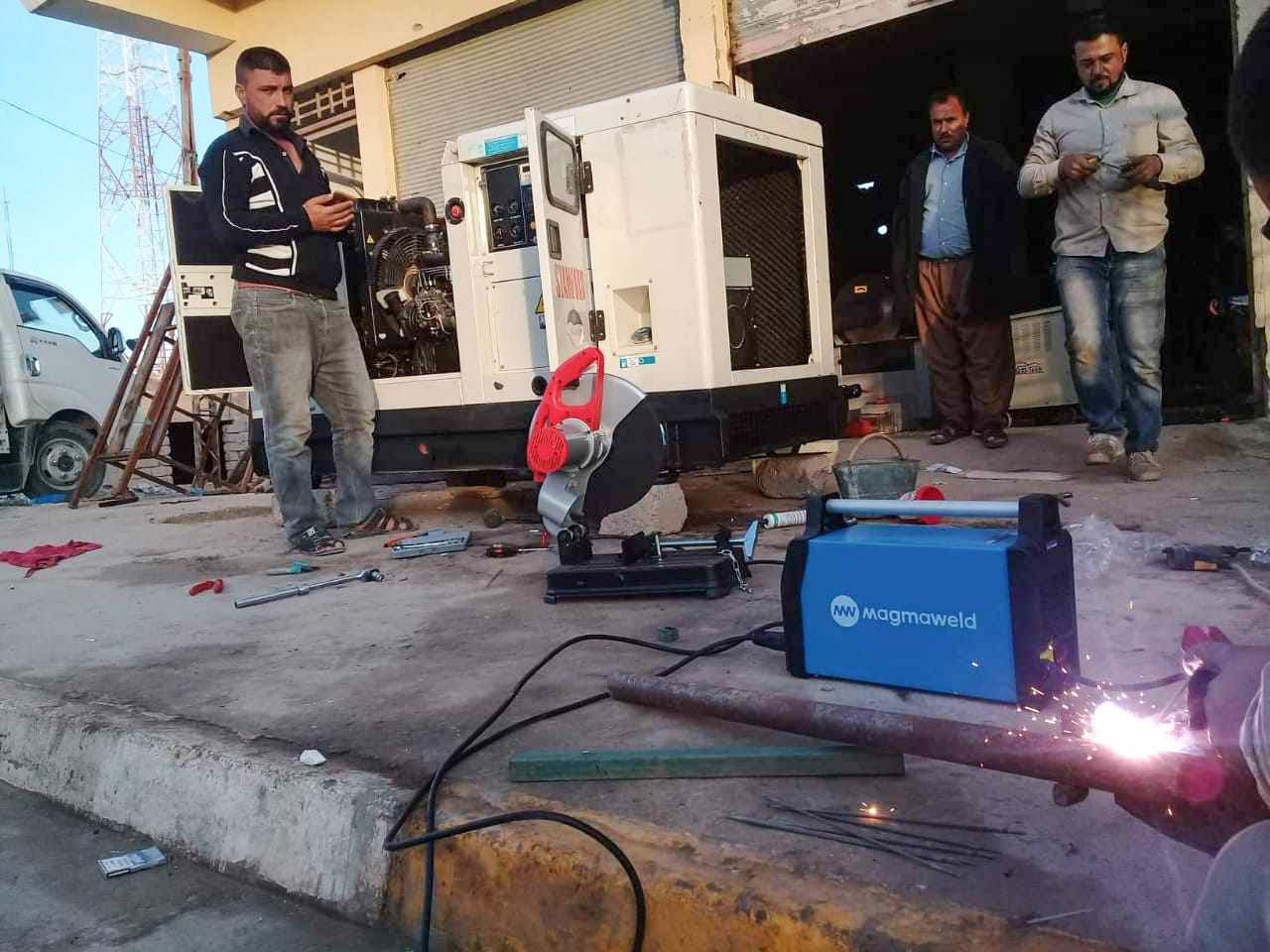
“Don’t listen to the news, and what they say… Yesterday I had a visitor from Baghdad, and he stayed in my home.” For many Yazidis, there is lingering anguish and mistrust around Iraq’s majority Arab population. During the time of ISIS, many Yazidis found themselves betrayed by Arab neighbors (as with Kurdish militia). Firas doesn’t seem burdened by that. “There’s a lot of Muslims and Yazidis [here]” he tells us. “Sinjar is filled with [different] ethnicities.”
 The current political climate in Sinjar is complicated. The federal government in Baghdad and regional government of Kurdistan continue to jockey for control and power in Sinjar. The armed forces of Turkey regularly bombs northern Sinjar, in their attempt to wipe out Kurdish political opponents. And no level of government is providing the basic services that returning residents need.
The current political climate in Sinjar is complicated. The federal government in Baghdad and regional government of Kurdistan continue to jockey for control and power in Sinjar. The armed forces of Turkey regularly bombs northern Sinjar, in their attempt to wipe out Kurdish political opponents. And no level of government is providing the basic services that returning residents need.
Firas frankly isn’t having any of it. He isn’t interested in reinforcing divisions between people—he is laser-focused on a different future and is eager to welcome neighbors home.
Your investment in small business and rebuilding projects in Iraq and Syria is happening in complicated places. You continue to show up for those eager to move home even though the conditions are far from perfect.
Your donations help everyday heroes like Firas make home possible for so many.

